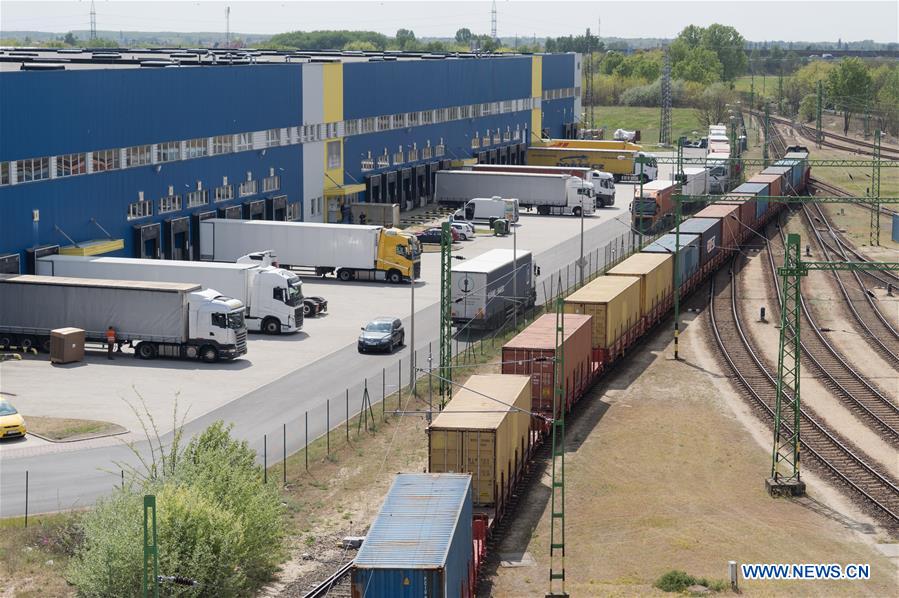China and Europe can still move forward together
- By George N. Tzogopoulos
 0 Comment(s)
0 Comment(s) Print
Print E-mail China.org.cn, May 8, 2020
E-mail China.org.cn, May 8, 2020

The beginning of 2020 looked promising for the evolution of Sino-European relations. Discussions about an Investment Agreement were expected to intensify – in spite of thorny issues. And three important events, the China-EU annual summit, the China-CEEC meeting, and the special Leipzig talks under the German presidency of the EU hopefully could create new impetus.
However, the outbreak of the COVID-19 pandemic put all such plans on hold. The agenda switched to largely focus on how the pandemic could be better fought in a united way.
Europe helped China by offering medical assistance in February. The Chinese Ministry of Foreign Affairs acknowledged this contribution considering "friends in need are friends indeed."
In March and April, it was China's turn to provide aid to several European countries including, for example, Serbia, Switzerland and the U.K. According to data from the China State Railway Group, the number of China-Europe freight trains reached a record monthly high in April, carrying massive quantities of medical supplies.
On the whole, Sino-European relations have been marked by a spirit of solidarity amid crisis. Some tensions occasionally have been inflamed at the level of public communication; however. One could say this is normal in a phase of high anxiety and frustration.
Fortunately, leading European politicians did not follow the path of American policy-makers and avoided social-stigma as well as unnecessary condemnations against China. Subsequently, the image of Europe in China remains positive.
German Chancellor Angela Merkel, for instance, has concentrated on the day-to-day battle against the virus to protect her country instead of looking for excuses. Moreover, Germany and China have also discussed practical options of collaboration in difficult times.
Even the recent interview of French President Emmanuel Macron in the Financial Times was very careful and reflected his general approach vis-à-vis China and Russia that deems cooperation a necessary prerequisite for further progress.
The commitment of various politicians to defend EU interests, and publicly talk about them, is completely different from joining the anti-China chorus – without reason.
China and the EU do not agree on all fronts. That is why they have sought to negotiate to find mutually-acceptable solutions. For its part, the EU asks for better access being offered to European companies in the Chinese market and Beijing continues its opening-up and reform process gradually satisfying some of these demands.
A recent article authored by EU High Representative Joseph Borell and published simultaneously in various parts of the bloc certainly elaborated on the European position in a clear way.
China also has concerns that are often ignored in Europe, for example the nature of the screening mechanism in regard to foreign investment. A comprehensive analysis of the state-of-play in Sino-European relations should include all aspects in the debate.
Chinese companies have invested in Europe in the absence of Western liquidity and with a need for more privatization. Demonization tactics do not solve problems a posteriori.
China and the EU are making efforts to better understand each other. What matters is to learn by differences through dialogue and build a joint future at all levels.
The author participated a few days ago in a virtual 17+1 research conference organized by the Chinese Academy of Social Sciences. During the meeting participants from China and Central and Eastern European countries shared experiences and discussed prospects.
For those preferring to see the glass as half-full and not half-empty, the ongoing pandemic showcases opportunities for greater synergy. Both sides believe in multilateralism and regard the role of the WHO as critical.
It is not the first time they have moved forward together in that regard. The same happened after U.S. President Donald Trump decided to withdraw from the Paris Agreement on climate change. Beijing and Brussels have certainly charted a good way forward.
No one knows when the COVID-19 nightmare will end. If there is a good thing within the tragedy, this is the general admission that international cooperation needs to be strengthened. The responsibility of China and the EU becomes higher than ever.
George N. Tzogopoulos is a columnist with China.org.cn. For more information please visit:
http://www.ccgp-fushun.com/opinion/GeorgeNTzogopoulos.htm
Opinion articles reflect the views of their authors, not necessarily those of China.org.cn.
If you would like to contribute, please contact us at opinion@china.org.cn.





